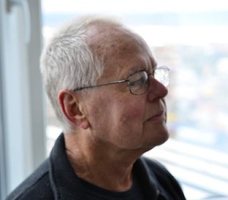
|
On every plane flight, in the safety demonstration, we are told “In the unlikely event of an emergency, a mask will fall from a panel above your head. Place your own mask on first and then attend to others around you”. In “The House of God”, a book for newly graduated doctors, the advice is “In an emergency, first take your own pulse”. We are not going to be of much help to a client if we are overwhelmed, resigned, or pretending to more confident than we are. Erickson told me “Just do good work” and I have found that this is a strong help for my self care. All of the previous posts can contribute to us doing good work, and so to caring for ourselves. The Dalai Lama says that the secret of happiness is to discover what make us happy and do more of that and to find what makes us unhappy an do less of that. If we do more things that we like, spend more time in these experiences, we can inoculate ourselves against any unwanted experiences we could otherwise be left with in our work with people. Inevitably some people will sneak under the radar, and leave us feeling heavy of burdened in some unhelpful way, and many people have told me that they have found that some ritual is helpful to get back into their own skin. Some have a glass of water, go for a walk, offload to a colleague, meditate … Here is something for you to try if you’re interested. Sit for a moment, and notice your own breathing, your own sensations of your body in contact with the chair, the air on your skin, the sounds around you, the physical objects in the room if your eyes are open. What do you notice that’s helpful after this experience? Rob McNeilly |


Hi Rob,
In your post on 8 self-care you write,“Inevitably some people will sneak under the radar, and leave us feeling heavy of burdened in some unhelpful way, and many people have told me that they have found that some ritual is helpful to get back into their own skin. Some have a glass of water, go for a walk, offload to a colleague, meditate …”
I was curious why you didn’t suggest that heavily-burdened counselors (similar to their advice to patients) ask themselves what is missing and seek the missing resource in their likes.
Many thanks,
Eric Houghton
Olympia, WA
Original Message
-—From: Rob McNeilly <noreply@zenlearn.com>To: Eric Houghton <e.houghton@comcast.net>Sent: Fri, 18 Dec 2015 19:54:28 -0000 (UTC)Subject: [online] 8 self care